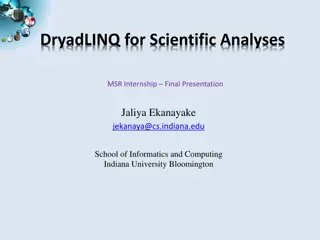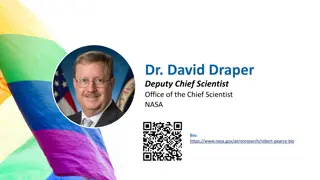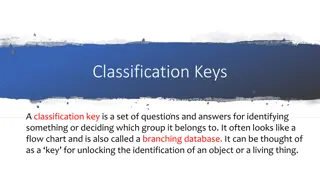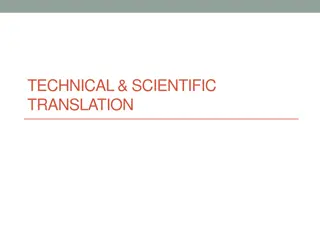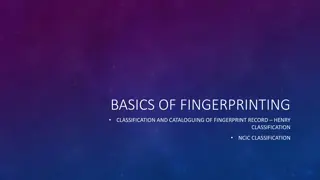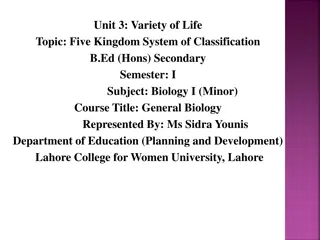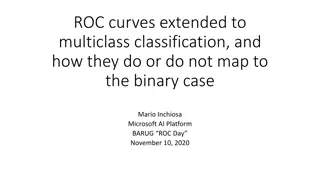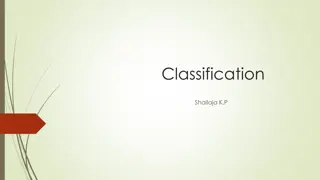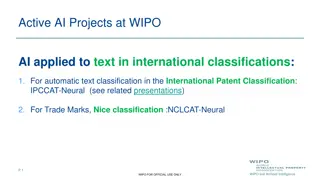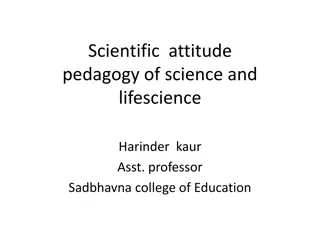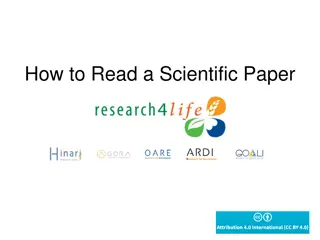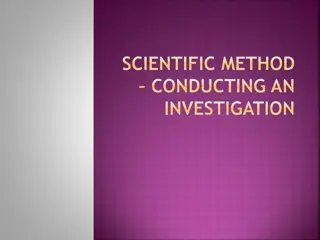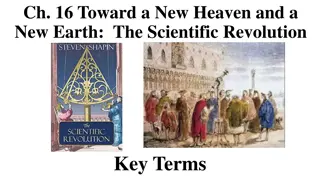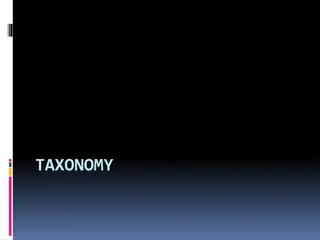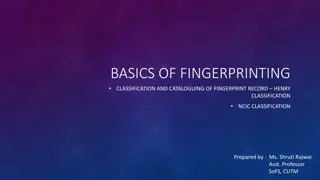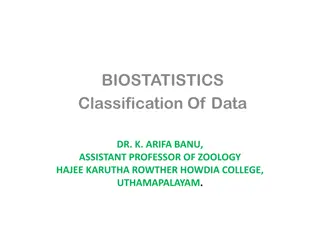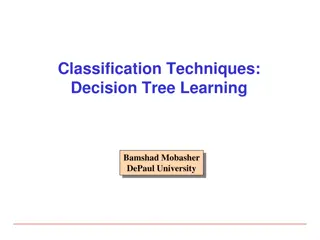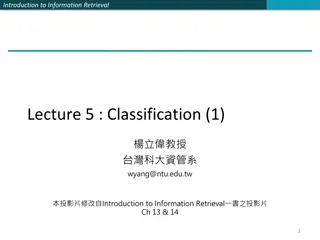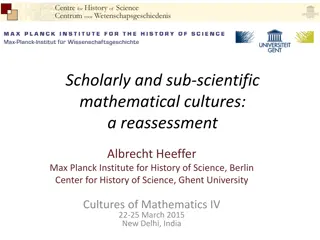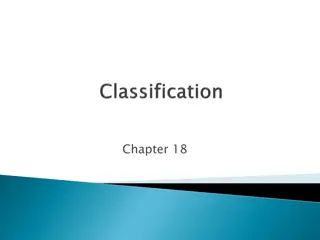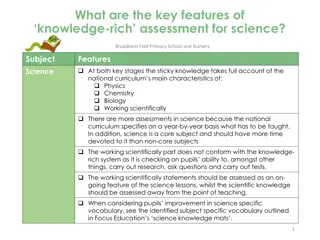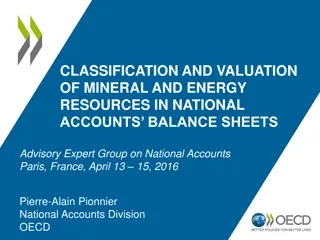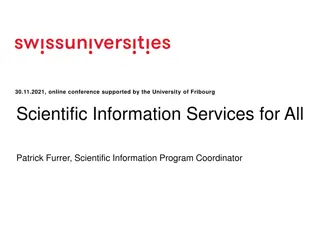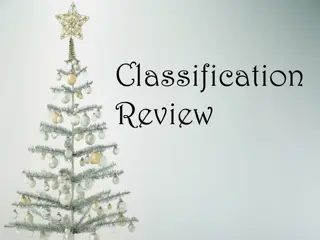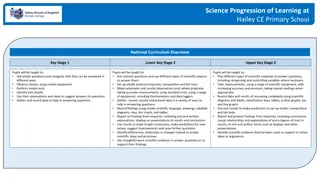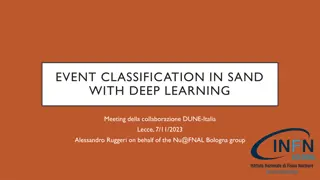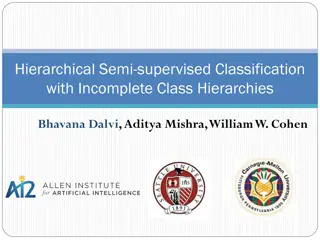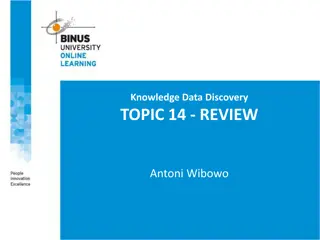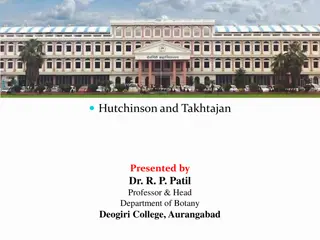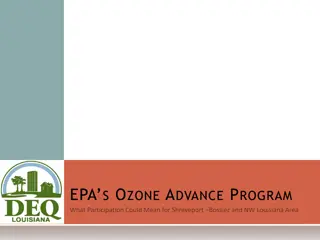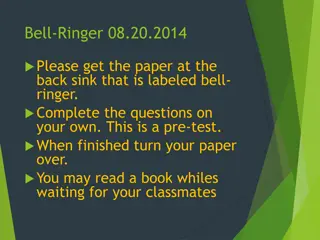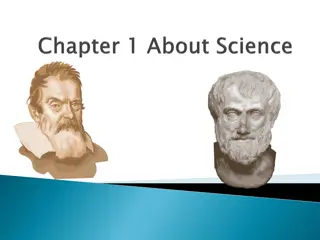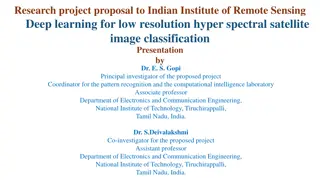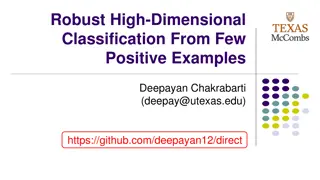Enhancing Scientific Literacy in Early Years Play-Based Learning
This PhD research proposal explores scientific literacy among children in play-based learning, focusing on everyday concepts and their application to scientific understanding. The study aims to implement Vygotsky's sociocultural theory to enhance children's scientific literacy through Vision 1 and V
7 views • 19 slides
Exploring the PROTEOCURE COST Action: Targeting Proteolysis for Proteome Remodeling
The PROTEOCURE COST Action focuses on targeting proteolysis for proteome remodeling, aiming to enhance Europe's scientific and technological capacity through collaboration across various fields and career stages. Participating in this initiative offers financial support, scientific networking, and c
0 views • 17 slides
Understanding Climate Change through Scientific Inquiry
Explore the role of science in addressing climate change, identifying scientific questions, discussing different disciplines involved, and analyzing the strength and limitations of scientific methods. Engage in activities to understand how scientific questions are formulated and categorized for inve
2 views • 22 slides
Evaluation of DryadLINQ for Scientific Analyses
DryadLINQ was evaluated for scientific analyses in the context of developing and comparing various scientific applications with similar MapReduce implementations. The study aimed to assess the usability of DryadLINQ, create scientific applications utilizing it, and analyze their performance against
0 views • 20 slides
Overview of NASA's Office of the Chief Scientist and Deputy Chief Scientist Dr. David Draper
The Office of the Chief Scientist (OCS) at NASA plays a vital role in advising, advocating, and representing the agency in various scientific matters. Dr. David Draper serves as the Deputy Chief Scientist. The OCS leads initiatives related to scientific integrity, research security, citizen science,
2 views • 11 slides
Understanding the Scientific Method in Measurements and Calculations
Explore the scientific method in detail, including observing, collecting data, formulating hypotheses, testing hypotheses, and formulating theories with practical examples. Understand the importance of experimentation and how it leads to the development of scientific theories. Engage in activities t
6 views • 43 slides
Understanding Classification Keys for Identifying and Sorting Things
A classification key is a tool with questions and answers, resembling a flow chart, to identify or categorize things. It helps in unlocking the identification of objects or living things. Explore examples like the Liquorice Allsorts Challenge and Minibeast Classification Key. Also, learn how to crea
1 views • 6 slides
Understanding Scientific Translation: A Vital Tool for Advancing Knowledge
Scientific translation is a specialized practice that involves accurately translating complex terms in fields such as science and technology to facilitate global knowledge exchange and advancement. It requires precision, fidelity to source material, and a deep understanding of technical terminology
0 views • 60 slides
Basics of Fingerprinting Classification and Cataloguing
Fingerprint classification is crucial in establishing a protocol for search, filing, and comparison purposes. It provides an orderly method to transition from general to specific details. Explore the Henry Classification system and the NCIC Classification, and understand why classification is pivota
5 views • 18 slides
Five Kingdom Classification in Biology: An Overview
The five kingdom system of classification, proposed by R.H. Whittaker in 1969, categorizes living organisms into Monera, Protista, Fungi, Plantae, and Animalia based on their characteristics. Each kingdom represents a distinct group of organisms, aiding in a more scientific and natural classificatio
2 views • 7 slides
Understanding ROC Curves in Multiclass Classification
ROC curves are extended to multiclass classification to evaluate the performance of models in scenarios such as binary, multiclass, and multilabel classifications. Different metrics such as True Positive Rate (TPR), False Positive Rate (FPR), macro, weighted, and micro averages are used to analyze t
3 views • 8 slides
Understanding Classification in Data Analysis
Classification is a key form of data analysis that involves building models to categorize data into specific classes. This process, which includes learning and prediction steps, is crucial for tasks like fraud detection, marketing, and medical diagnosis. Classification helps in making informed decis
2 views • 72 slides
AI Projects at WIPO: Text Classification Innovations
WIPO is applying artificial intelligence to enhance text classification in international patent and trademark systems. The projects involve automatic text categorization in the International Patent Classification and Nice classification for trademarks using neural networks. Challenges such as the av
2 views • 10 slides
Understanding Scientific Attitude and Pedagogy of Science
Scientific attitude involves open-mindedness, curiosity, rationality, and a desire for accurate knowledge. It includes characteristics such as critical thinking, respect for diverse viewpoints, and a reliance on verified information. Developing a scientific attitude involves studying superstitions,
1 views • 6 slides
Guide to Reading Scientific Papers
Understanding how to read a scientific paper is crucial for researchers and students alike. This guide covers the types of scientific papers, organization of a paper, and the key steps to properly read and comprehend complex scientific information. It explains the different sections of a paper, such
0 views • 20 slides
Understanding the Scientific Method: A Comprehensive Guide
Exploring the scientific method and principles of scientific investigation, this guide covers the mindset of a scientist, steps in the scientific method, and key components like formulating questions, conducting research, creating hypotheses, performing experiments, and analyzing results. It emphasi
1 views • 21 slides
Explore the Scientific Revolution
The Scientific Revolution marked a shift from the medieval worldview to a secular, rational, and materialistic perspective. Key terms such as geocentric and heliocentric conceptions, Cartesian dualism, rationalism, and the scientific method played pivotal roles in shaping this transformative period.
7 views • 10 slides
Understanding Taxonomy and Scientific Classification
Explore the world of taxonomy and scientific classification, from the discipline of classifying organisms to assigning scientific names using binomial nomenclature. Learn the importance of italicizing scientific names, distinguish between species, and understand Linnaeus's system of classification.
0 views • 19 slides
Overview of Fingerprint Classification and Cataloguing Methods
Explore the basics of fingerprint classification, including Henry Classification and NCIC Classification systems. Learn about the importance of classification in establishing protocols for searching and comparison. Discover the components of Henry Classification, such as primary, secondary, sub-seco
1 views • 21 slides
Understanding BioStatistics: Classification of Data and Tabulation
BioStatistics involves the classification of data into groups based on common characteristics, allowing for analysis and inference. Classification organizes data into sequences, while tabulation systematically arranges data for easy comparison and analysis. This process helps simplify complex data,
0 views • 12 slides
Introduction to Decision Tree Classification Techniques
Decision tree learning is a fundamental classification method involving a 3-step process: model construction, evaluation, and use. This method uses a flow-chart-like tree structure to classify instances based on attribute tests and outcomes to determine class labels. Various classification methods,
5 views • 20 slides
Understanding Text Classification in Information Retrieval
This content delves into the concept of text classification in information retrieval, focusing on training classifiers to categorize documents into predefined classes. It discusses the formal definitions, training processes, application testing, topic classification, and provides examples of text cl
0 views • 57 slides
Reassessing Scholarly and Sub-Scientific Mathematical Cultures
Scholarly and sub-scientific mathematical cultures are reevaluated through the works of Jens Hoyrup, focusing on the organized nature of sub-scientific knowledge. The distinction between theoretical and practical knowledge, applications to mathematical cultures, and misconceptions related to the sup
0 views • 53 slides
Understanding Taxonomy and Classification in Biology
Scientists use classification to group organisms logically, making it easier to study life's diversity. Taxonomy assigns universally accepted names to organisms using binomial nomenclature. Carolus Linnaeus developed this system, organizing organisms into species, genus, family, order, class, phylum
0 views • 11 slides
Key Features of Knowledge-Rich Assessment for Science at Broadbent Fold Primary School
Sticky knowledge in science assessment at Broadbent Fold Primary School encompasses Physics, Chemistry, Biology, and Working Scientifically. Assessments are detailed due to the structured national curriculum, with a focus on specific scientific vocabulary and practical applications. The ongoing asse
0 views • 20 slides
Mineral and Energy Resources Classification and Valuation in National Accounts Balance Sheets
The presentation discusses the classification and valuation of mineral and energy resources in national accounts balance sheets, focusing on the alignment between the System of Environmental-Economic Accounting (SEEA) and the System of National Accounts (SNA) frameworks. It highlights the need for a
0 views • 17 slides
Scientific Services for All - Enhancing Scientific Information and Services
This online conference, supported by the University of Fribourg, focuses on providing scientific information and services for all. Led by Patrick Furrer, the Scientific Information Program Coordinator, the event delves into creating a network of services, developing a coordination structure, and sho
0 views • 12 slides
Quiz Review on Scientific Method and Graphing
Explore a quiz review covering topics related to scientific method, graphing, and experimental design. Understand key concepts such as hypothesis, scientific law, theory, variables, and experimental control through detailed questions and images. Test your knowledge on laboratory safety, inferences,
0 views • 14 slides
Fusion Science Department Enabling Research Projects 2021-2023
The Fusion Science Department Enabling Research Projects for 2021-2023 focus on developing novel fusion-relevant scientific and technological ideas. These projects, led by Principal Investigators, are distinct from main work packages and involve scientific planning, team collaboration, and resource
0 views • 11 slides
Understanding Biological Classification and Candy Types
Explore the fascinating world of biological classification by learning about the scientific naming system of organisms. Discover the significance of genus and species names, and test your knowledge with fun candy-themed classification questions. From identifying Norn species to categorizing candy va
0 views • 22 slides
Science Progression of Learning at Hailey CE Primary School Overview
This curriculum overview outlines the scientific learning progression for pupils at Hailey CE Primary School across Key Stage 1, Lower Key Stage 2, and Upper Key Stage 2. It details the development of scientific skills and knowledge, from asking simple questions and making observations to planning a
0 views • 11 slides
Event Classification in Sand with Deep Learning: DUNE-Italia Collaboration
Alessandro Ruggeri presents the collaboration between DUNE-Italia and Nu@FNAL Bologna group on event classification in sand using deep learning. The project involves applying machine learning to digitized STT data for event classification, with a focus on CNNs and processing workflows to extract pri
0 views • 11 slides
Hierarchical Semi-Supervised Classification with Incomplete Class Hierarchies
This research explores the challenges and solutions in semi-supervised entity classification within incomplete class hierarchies. It addresses issues related to food, animals, vegetables, mammals, reptiles, and fruits, presenting an optimized divide-and-conquer strategy. The goal is to achieve semi-
0 views • 18 slides
Understanding Classification in Data Mining
Classification in data mining involves assigning objects to predefined classes based on a training dataset with known class memberships. It is a supervised learning task where a model is learned to map attribute sets to class labels for accurate classification of unseen data. The process involves tr
0 views • 26 slides
Overview of Hutchinson and Takhtajan's Plant Classification System
Hutchinson and Takhtajan, as presented by Dr. R. P. Patil, Professor & Head of the Department of Botany at Deogiri College, Aurangabad, have contributed significantly to the field of plant classification. John Hutchinson, a renowned British botanist, introduced a classification system based on princ
0 views • 20 slides
Understanding the EPA's Ozone Advance Program and Clean Air Act
The content covers key information about the EPA's Ozone Advance Program, including the basics of ozone, the Clean Air Act requirements, designation vs. classification, classification deadlines, and marginal classification requirements. It explains the formation of ozone, the importance of reducing
0 views • 40 slides
Understanding the Scientific Method: Pre-Test and Daily Agenda
Explore the process of science with a pre-test on the scientific method, followed by a detailed daily agenda covering activities like bell-ringers, reviews, and experimental design. Understand the nature of science, scientific reasoning, and the importance of variables, groups, and constants in inve
0 views • 51 slides
Evolution of Scientific Thought and the Scientific Method
Explore the evolution of scientific theories and methodologies through the works of influential figures like Aristotle, Copernicus, Galileo Galilei, and Francis Bacon. From the geocentric beliefs of Aristotle to the heliocentric model proposed by Copernicus, witness the shift in paradigms and the em
0 views • 14 slides
Deep Learning for Low-Resolution Hyperspectral Satellite Image Classification
Dr. E. S. Gopi and Dr. S. Deivalakshmi propose a project at the Indian Institute of Remote Sensing to use Generative Adversarial Networks (GAN) for converting low-resolution hyperspectral images into high-resolution ones and developing a classifier for pixel-wise classification. The aim is to achiev
0 views • 25 slides
Robust High-Dimensional Classification Approaches for Limited Data Challenges
In the realm of high-dimensional classification with scarce positive examples, challenges like imbalanced data distribution and limited data availability can hinder traditional classification methods. This study explores innovative strategies such as robust covariances and smoothed kernel distributi
0 views • 10 slides



